Text
Writing Tip #26
Write down your rules
This one kind of goes along with the last writing tip, but it’s particularly important for anyone who is engaging in any kind of worldbuilding (i.e. fantasy or sci-fi writers)
Have a page somewhere where you keep track of all the ways your world differs from our own. Write down the rules your world and your characters have to abide by.
For example:
Characters cannot wear socks on Thursdays
Things that are usually green are purple
Character A can never eat a grape or they will die
Etc, etc, etc. This will help prevent excessive plot holes and keep you on track.
2 notes
·
View notes
Text
Writing Tip #25
Read your own work with skepticism.
Never stop questioning yourself as you write. Readers are some of the most astute people on the planet, and they will notice plot holes. (We’ve all seen it happen, and it’s not always pretty or constructive.)
Is it the end of the world if it happens? No. But to avoid being on the receiving end, always question the world that you’re creating. Treat everything like a string and follow it all the way to the end. Try to imagine what readers will think as they read, and what things they’ll question.
Now, this doesn’t mean you have to explain everything right away. In fact, it’d be bad if you did. But at least address it.
For example: if Character A is acting weird because they’re being blackmailed, but the reader doesn’t know it, you can’t JUST have Character A act weird. You have to have Character B question it, either to themselves or to Character A, or even to Character C. In this way, Character B assures the reader that Character A’s uncharacteristic behavior isn’t just sloppy writing, and that it will eventually be revealed why Character A is acting weird, which will also serve to create suspense.
And then when you’re done, have someone else question it, too.
2 notes
·
View notes
Text
Writing Tip #24
Keep track of big changes and what parts of the work they’re going to affect
Big changes happen (like having to change 15 chapters from first person to third, yes I’m still bitter as black coffee about it). It’s normal, though. That being said, they’re a pain. Especially when it’s going to change the way a character acts or thinks.
So when you make a big change, try to brainstorm and jot down what other parts of the story the change will affect. You’re not going to catch everything, but it’ll help to already have specific things in mind when you go back to edit.
And don’t go back to change things until you’re done with your first draft. Trust me.
8 notes
·
View notes
Photo





Chuck Wendig is not here for writing ultimatums.
21K notes
·
View notes
Text
Author Success Update #1
I’m not sure if you guys remember this post, wherein, in a surprising turn of events, a story I published in my alma mater’s literary journal three years ago landed me on the shortlist to submit to Z Publishing’s “Emerging Writers of America” series, but I’m thrilled to announce that my submission was chosen and will be featured in the series!
If anybody is interested, you can pre-order the book here, and support some other fantastic emerging authors while you’re at it!
DWA
0 notes
Text
Writing Tip #23
Know the pros and cons of each POV (and consider that before you start writing)
Don’t be like me and wait until you’re 55k words deep in your manuscript before you realize that you’ve been writing in the wrong POV. Seriously. I have 15 chapter of first person narrative to rewrite when I finish. Don’t make my mistakes. And to help you not be like me, here’s a quick rundown:
First Person:
Pros: FP can sometimes feel more natural to write in. It also lets you dig really deep into one particular character, so if you have a character with a really great backstory and complex emotions, this might be the POV for you. FP also tends to be more intimate; it really gives readers the “someone’s telling this story to me.” The language will also be a little more informal than in, say, third person omniscient.
Cons: FP is still a limited POV, so if you have a lot of characters, you tend to lose out on getting their perspective and thought processes. Also, I’m all here for following your author instincts, but I have heard it said that some readers dislike FP narratives because they find it difficult to put themselves in the narrator’s shoes and just spend the book thinking “Well, I wouldn’t actually do that.” There’s also some limitation as far as style and language go. The way you write has to match up with the way your narrator thinks and speaks, so if you’re writing from the POV of an 18yo girl who never finished high school, you probably shouldn’t write like a 20-something with an English degree (i.e. my problem).
Second Person:
Pros: The amount of books written in second person is drastically lower than those written FP or TP (haha toilet paper), so you’ll definitely stand out. I’d say it would probably work a lot better with a short story, though. The first story I ever got published was actually SP, so it can be useful.
Cons: It’s hard. It’s really hard. Let’s just leave it at that. Unless, of course, one of you decides to send me an ask telling me to elaborate.
Third Person Limited:
Pros: TPL pretty much solves the FP issue wherein the language has to match the character who’s narrating. You can have a narrator who uses fancy-pantsy language, but still keep the focus mainly on that one character.
Cons: See above FP con where you miss out on some of the characters’ POVs
Third Person Omniscient:
Pros: You have a lot more room to play with TPO. Because your narrator isn’t a character, you can go nuts with style and language and sprinkle metaphors on your story like confetti (But maybe don’t do that unless you know what you’re doing). You can also play with suspense a lot more freely because your narrator knows everything that everyone is doing and thinking. You can also go very in depth with a wider array of characters because, again, your narrator is inside everyone’s head.
Cons: TPO requires discipline. You have to have a very clear knowledge of what everyone is thinking, feeling, and doing, and how these thoughts, feelings, and actions affect everyone else. You also have to make sure to keep things balanced. TPO means making sure one character’s POV doesn’t take up three or four times the room someone else’s POV does. You have to be comfortable with moving from one character’s POV to another’s to another’s and keeping your transitions between them understandable.
I know this is a lot of info, so if there’s anything that needs clarification or that you guys want me to expand on, shoot me an ask and I’ll ramble some more.
#text post#writing tips#pov#pros and cons#long post#first person narrative#second person narrative#third person limited#third person omniscient
4 notes
·
View notes
Text
Writing Tip #22
On the topic of writing scenes involving kissing:
If you find yourself uncomfortable or having difficulty writing a scene where two characters kiss, sometimes less is more. Keep your focus on the emotions behind the kiss, rather than the physical actions that make it up. Because really that’s the best part; tell us about the butterflies in the stomach, the anticipation, the tingling down the spine, the goosebumps. Give us all the emotions and leave the physical stuff to the imagination.
1 note
·
View note
Text
Trying to edit when you aren’t sure what needs fixing

42K notes
·
View notes
Conversation
Writer Ask Meme
1. Tell us about your WIP!
2. Where is your favorite place to write?
3. What is your favorite/least favorite part about writing?
4. Do you have any writing habits/rituals?
5. Top five formative books?
6. Favorite character you’ve written?
7. Favorite/most inspirational book?
8. Do you have any writing buddies or critique partners?
9. Favorite/least favorite tropes?
10. Pick an author (or writing friend) to co-write a book with
11. What are you planning to work on next?
12. Which story of yours do you like best? why?
13. Describe your writing process
14. What does it take for you to be ready to write a book? (i.e. do you research? outline? make a playlist or pinterest board? wing it?)
15. How do you deal with self-doubt when writing?
16. Cover love/dream covers?
17. What things (scenes/topics/character types) are you most comfortable writing?
18. Tell us about that one book you’ll never let anyone read
19. How do you cope with writer’s block?
20. Any advice for young writers/advice you wish someone would have given you early on?
21. What aspect of your writing are you most proud of?
22. Tell us about the books on your “to write” list
23. Most anticipated upcoming books?
24. Do you remember the moment you decided to become a writer/author?
25. What’s your worldbuilding process like?
26. What’s the most research you’ve ever put into a book?
27. Every writer's least favorite question - where does your inspiration come from? Do you do certain things to make yourself more inspired? Is it easy for you to come up with story ideas?
28. How do you stay focused on your own work and how do you deal with comparison?
29. Is writing more of a hobby or do you write with the intention of getting published?
30. Do you like to read books similar to your project while you’re drafting or do you stick to non-fiction/un-similar works?
31. Top five favorite books in your genre?
32. On average how much do you write in a day? do you have trouble staying focused/getting the word count in?
33. What’s your revision/rewriting process like?
34. Unpopular writing thoughts/opinions?
35. Post the last sentence you wrote
36. Post a snippet
37. Do you ever write long handed or do you prefer to type everything?
38. How do you nail voice in your books?
39. Do you spend a lot of time analyzing and studying the work of authors you admire?
40. Do you look up to any of your writer buddies?
41. Are there any books you feel have shaped you as a writer?
42. How many drafts do you usually write before you feel satisfied?
43. How do you deal with rejection?
44. Why (and when) did you decide to become a writer?
45. First or third person?
46. Past or present tense?
47. Single or dual/multi POV?
48. Do you prefer to write skimpy drafts and flesh them out later, or write too much and cut it back?
49. Favorite fictional world?
50. Do you share your rough drafts or do you wait until everything is all polished?
51. Are you a secretive writer or do you talk with your friends about your books?
52. Who do you write for?
53. What is the first line of your WIP?
54. Favorite first line/opening you’ve written?
55. How do you manage your time/make time for writing? (do you set aside time to write every day or do you only write when you have a lot of free time?)
10K notes
·
View notes
Text
Author Failure Update #1
So I’m sure I lost a good amount of followers based on the extended hiatus I took unexpectedly. It started with two weeks of a murderously painful bout of the flu, progressed to a bitter nor’easter and half a week without power (starting on my birthday nonetheless), moved on to a newly hired coworker sowing chaos through the office and consequently getting fired, meaning I consequently ended up having to work extra hours to cover her shifts, and now being up for a promotion that again means I need to do extra work to prove myself.
All that being said, I’m back (babybackbabyback) and excited to start posting again, so if you guys have run into any issues while I was away, or thought of any topics you’d like to see me cover, please fill up my inbox.
DWA
0 notes
Text
Proper punctuation can make the difference between a sentence that’s well-written and a sentence that’s, well, written..
67K notes
·
View notes
Text
Color Synonyms
White
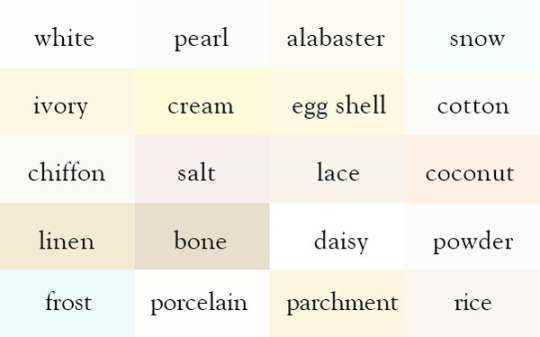
also: pale; blanched; sallow; pallid; waxen; spectral; translucent; albino;
Grey
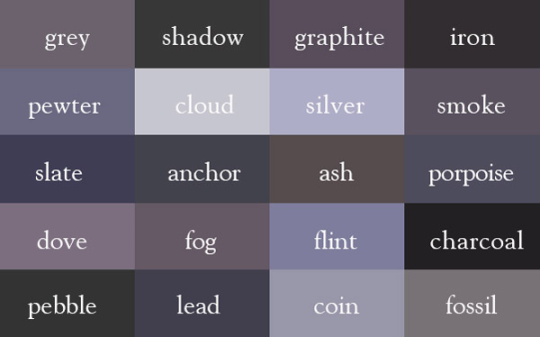
also: dust; stone; pepper;
Black

also: coal; slate; dusky; ebon; shadow; murky;
Tan
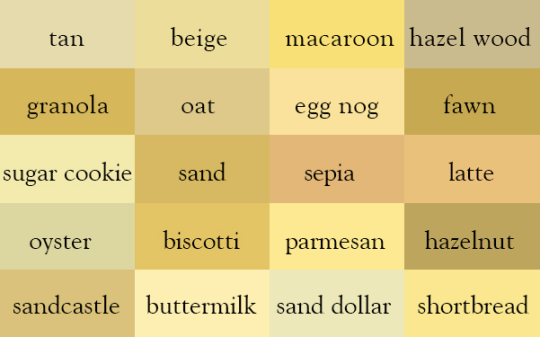
also: flesh; khaki; cream; tawny;
Brown
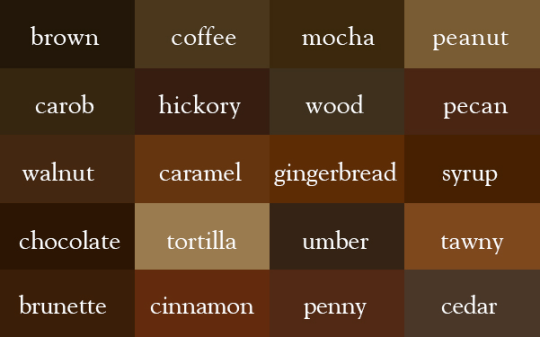
also: henna; russet; sepia; chestnut; cocoa; drab; bronze;
Red
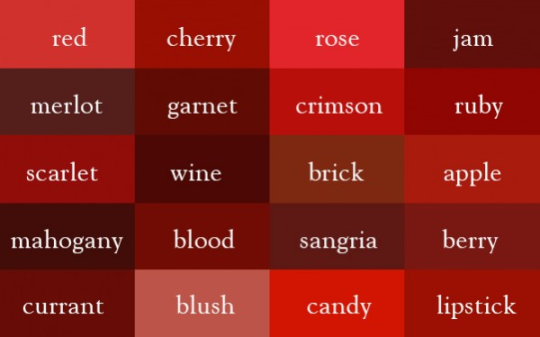
also: terracotta ; rouge; carmine; fire-engine; ruddy
Orange
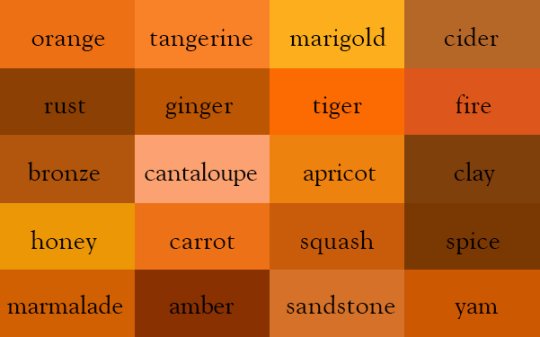
also: pumpkin ; rust ;
Yellow

also: sunny; amber; saffron; hay; straw; platinum;
Green
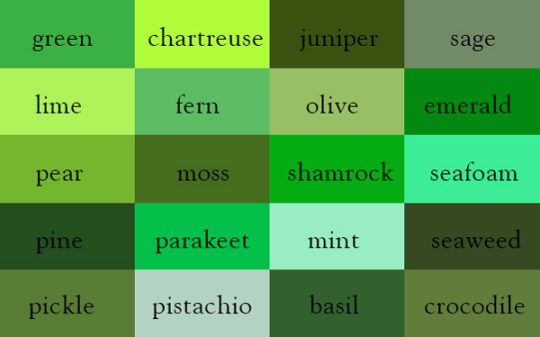
also: viridescent; grass; jade; forest;
Blue
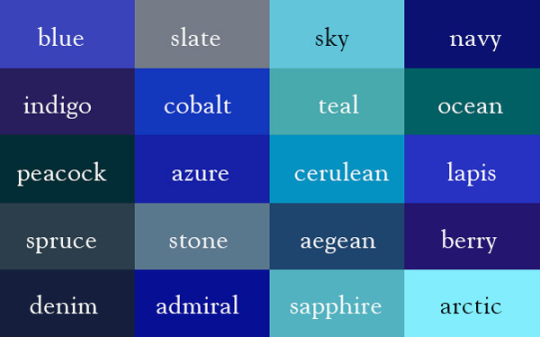
also: turquoise; cyan; ultramarine; royal; aqua; aquamarine;
Purple
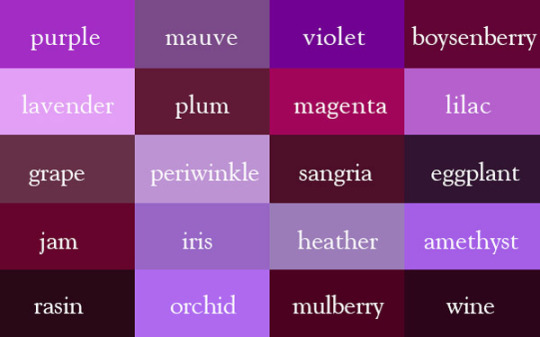
also: berry; amaranthine;
Pink

also: flushed; candy; cherry blossom; petal pink ;
—– source: http://ingridsundberg.com/
—–additional synonyms added by me
240K notes
·
View notes
Text
Full offense but your writing style is for you and nobody else. Use the words you want to use; play with language, experiment, use said, use adverbs, use “unrealistic” writing patterns, slap words you don’t even know are words on the page. Language is a sandbox and you, as the author, are at liberty to shape it however you wish. Build castles. Build a hovel. Build a mountain on a mountain or make a tiny cottage on a hill. Whatever it is you want to do. Write.
144K notes
·
View notes
Text
Writing Tip #21
Observant people make the best writers
One of the most important things when it comes to writing is making your reader feel, see, smell, and sense everything you’re describing as if it’s really happening. And what better way to make sure your descriptions are palpable than being able to feel it yourself when you’re writing.
Being present and observant in your day to day life will translate into your writing. Next time you’re outside, take a moment to assess everything around you. How does the air feel? What do you hear? How do the colors blend into each other? Are there shapes in the shadows?
And this extends to emotion as well. Next time you feel angry, take a second to look inward. How’s your heart rate? Is your face flushed? What muscles are you clenching? What’s your first instinct on how to react?
And steal things from strangers. (And no, I’m not condoning actual thievery of their possessions, just their traits). Sometimes the way a stranger talks, or their outfit, or something you hear in passing can be used later.
Being present like this and taking notice of things like this will make your descriptions more immediate. When you’re trying to imagine the way something feels without really feeling it, and then trying to make your reader imagine it too kind of waters down your description. It becomes generic.
So take notice of things in the unique way that only you can.
10 notes
·
View notes
Text
Writing Tip #20
Word count doesn’t count
While challenges like NaNoWriMo are great to get you motivated, it’s important to remember that word count doesn’t always ever matter the first time around. It is IMPOSSIBLE to accurately guess what your word count is going to be, and trying to have a certain word or page count per chapter is just going to end up making you stretch scenes that don’t need to be stretched, or rushing scenes that deserve time to linger.
It’s definitely good to be cognizant of industry standards when it comes to the average word count for your genre, but only on second, third and forth drafts. Sometimes your first is long and you realize you need to edit it down or vice versa, but don’t pressure yourself.
0 notes
Text
Writing Tip #19
Sometimes your first idea won’t work out . . . and that’s okay
So on Thursday I got an email from a publishing house who had read some of my work from my alma mater’s literary journal. They extended me an invitation to submit to their Emerging Authors of America series. So I did my happy dance, making a complete fool of myself in the process, and then realized I had nothing to submit.
“It’s okay, though,” I told myself. “You have time to come up with something.”
HA. Nope, deadline was in four days. Awesome.
So I started churning out some half baked idea, got four pages in and realized it was the equivalent of me trying to wring out a dry sponge and hoping for water. My heart just wasn’t in it.
With the deadline looming, it was really tempting to try to keep wringing, but I had to admit it just wasn’t my best work. Once I let go a little, I had another idea that actually worked for me, and I think (fingers crossed) has a chance at getting picked.
Long story short, don’t worry if your initial idea doesn’t work. It’s not worth beating yourself up over, and something else will come with time.
PS: writing tip within a writing tip: don’t knock school publications. I never thought my university’s journal would get my career anywhere, but I was wrong. Submit submit submit, you never know what’s going to get you noticed.
2 notes
·
View notes
